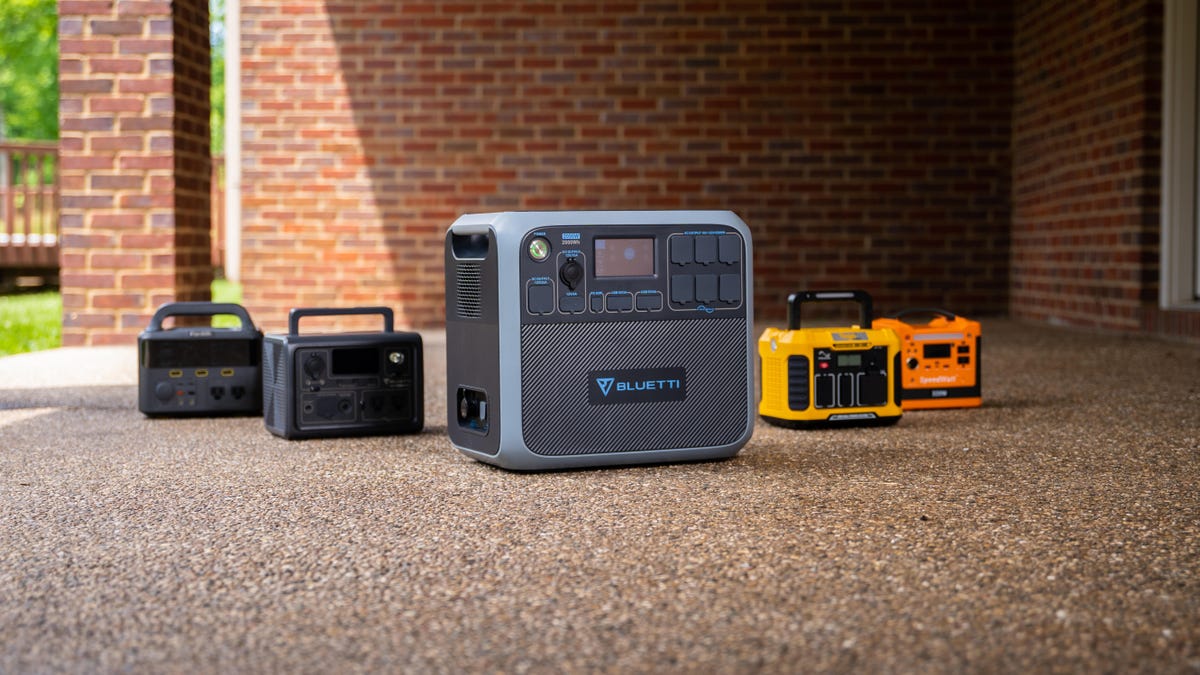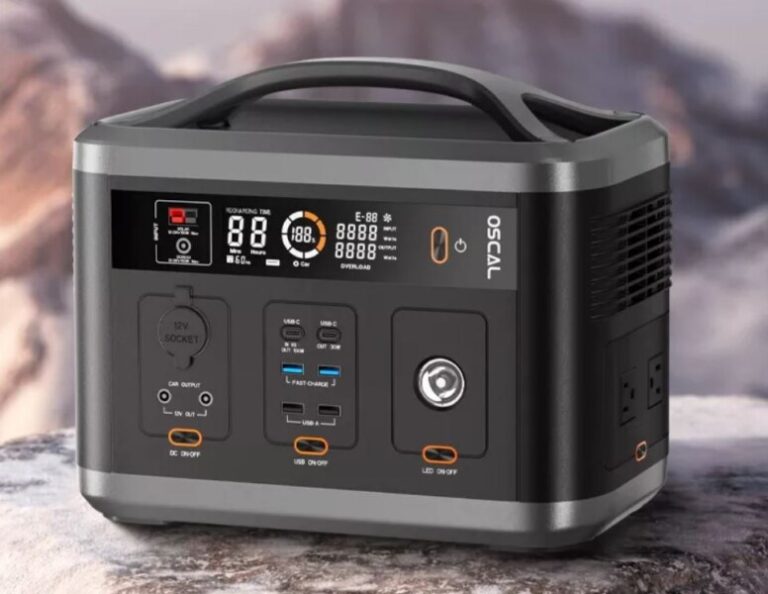An inverter converts DC power to AC power. A portable power station stores energy and provides power on the go.
An inverter is a critical component in many electrical systems, especially for converting power from batteries to usable AC power for appliances. Portable power stations, on the other hand, are self-contained units that store energy and can power multiple devices simultaneously.
These power stations are ideal for outdoor activities, emergencies, and situations where conventional power sources are unavailable. They typically come with multiple outlets, USB ports, and other features to meet diverse energy needs. Understanding the difference between an inverter and a portable power station can help in choosing the right solution for specific power requirements.

Credit: www.cnet.com
Inverter Basics
An inverter changes DC power to AC power. It is often used in homes. Many appliances need AC power to work. The inverter helps these appliances run.
The main parts of an inverter are the battery, converter, and control circuit. The battery stores DC power. The converter changes DC to AC power. The control circuit manages the process.
Inverters are used in many places. They power home appliances during power cuts. They are also used in solar power systems. Many people use them for camping and RV trips.
Portable Power Station Basics
An inverter converts DC power from a battery to AC power for various devices. A portable power station includes an inverter along with a built-in battery, offering a self-contained power source.
Definition
A portable power station is a rechargeable battery-powered device. It provides electricity for various gadgets and appliances. It is compact and easy to carry. The power station has multiple outlets for different devices.
Key Components
| Component | Description |
|---|---|
| Battery | The main power source of the station. |
| Inverter | Converts DC to AC power. |
| Outlets | Provides connection points for devices. |
| Charging Ports | Used to recharge the battery. |
Common Uses
People use portable power stations for outdoor activities like camping. They are great during power outages at home. They help charge phones, laptops, and small appliances. They provide a reliable power source in remote areas.
Power Source And Storage
An inverter usually connects to a home’s electrical system. It converts DC power from batteries to AC power. This is useful for running household appliances. A portable power station has built-in batteries. It can be charged by solar panels, wall outlets, or car chargers. This makes it versatile for outdoor activities.
An inverter relies on external batteries. The battery size can be customized based on needs. A portable power station has integrated batteries. These batteries are compact and lightweight. They are designed for easy transport. Portable power stations have limited capacity but are convenient.

Credit: www.nytimes.com
Portability And Mobility
An inverter is often lighter and smaller than a portable power station. This makes it easier to carry. Most inverters are designed to be compact. They fit well in small spaces. Portable power stations can be heavier. They are often bulkier due to their larger batteries. This can make them harder to move around. Choosing between them depends on your portability needs.
Inverters usually come with handles or straps. This makes them easy to carry. You can often fit them in a backpack. Portable power stations may have wheels and pull handles. This helps you move them despite their weight. For short trips, an inverter is often more convenient. For longer trips, a portable power station might be better.
Power Output And Capacity
An inverter usually offers a wattage range from 300 to 5000 watts. This makes it suitable for small to large appliances. A portable power station typically provides a range of 200 to 2000 watts. This is ideal for smaller devices and camping gear.
Inverters are often linked to car batteries or solar panels. They can provide power for hours or even days, depending on the battery size. Portable power stations usually come with built-in lithium batteries. They can supply power for several hours but need recharging after that.

Credit: www.anker.com
Use Cases And Applications
Inverters are perfect for home backup power. They can run essential appliances during outages. Great for camping trips where you need to power small devices. Ideal for road trips to keep gadgets charged. Suitable for off-grid cabins for powering lights and small tools.
Portable power stations are great for outdoor adventures. They can power camping gear like lights and stoves. Perfect for emergency kits to keep phones charged. Ideal for construction sites needing portable power. Useful for tailgating parties to run small appliances. Handy for remote work in nature. Great for medical devices during power outages.
Cost And Maintenance
Inverters usually cost less than portable power stations. The price of an inverter starts at a few hundred dollars. Portable power stations can cost over a thousand dollars. The initial investment for a portable power station is higher.
Inverters need regular maintenance. Cleaning and checking connections are necessary. Portable power stations need less upkeep. They have fewer parts to maintain. Inverters can last many years with care. Portable power stations also have a long lifespan. Their batteries might need replacing over time.
Frequently Asked Questions
What Is An Inverter?
An inverter converts DC power from batteries to AC power for home use. It’s ideal for converting stored energy to usable electricity.
What Is A Portable Power Station?
A portable power station is a compact device that stores and provides electricity. It’s perfect for outdoor activities and emergencies.
Can An Inverter Be Used With A Portable Power Station?
Yes, an inverter can be used with a portable power station. It helps convert stored DC power to usable AC power.
Which Is Better: Inverter Or Portable Power Station?
Both have unique benefits. Inverters are great for converting stored energy, while portable power stations offer convenience and portability.
Conclusion
Choosing between an inverter and a portable power station depends on your power needs and usage. Inverters are ideal for home use, while portable power stations suit outdoor activities. Both have unique benefits. Understanding their differences helps you make an informed decision.
Choose wisely to ensure a reliable power source.

